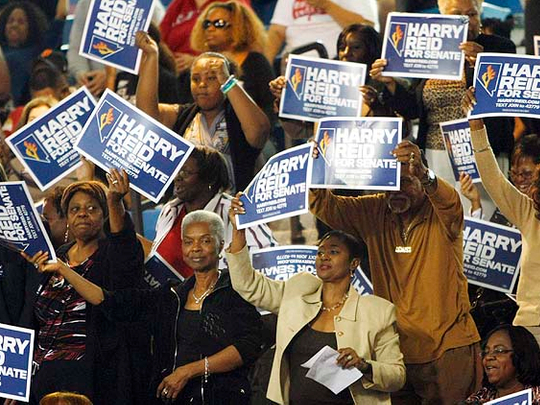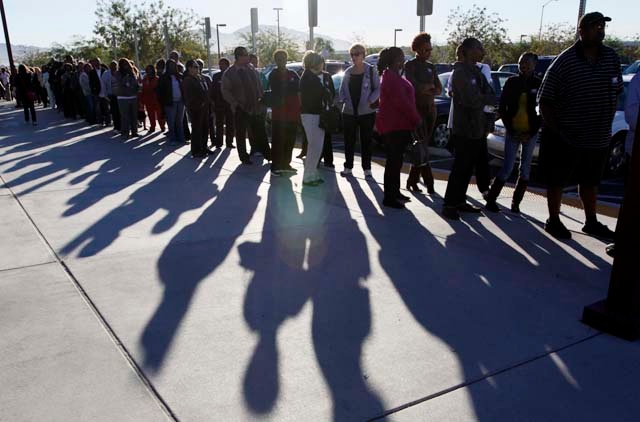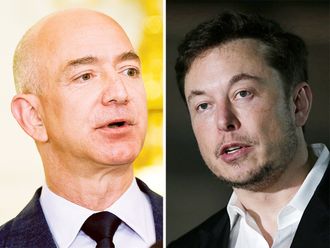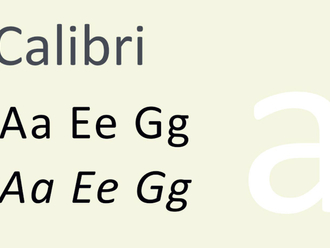
Washington: Angry American voters were poised to deliver a heavy blow on Tuesday to President Barack Obama's Democrats in an election that promises to shake up the political landscape across the United States.
Just two years after Obama swept into office with large congressional majorities on a promise of hope and change, voters discouraged by the dismal US economy were expected to hand Republicans control of the House of Representatives.
Republicans were also expected to make gains in the Senate, with an outside shot at capturing the upper chamber.
Republicans buoyantly forecast a new era of divided government. "We're hoping now for a fresh start with the American people," said Republican National Committee chairman Michael Steele.
The elections at the midpoint of Obama's term are a prime-time test of strength for the loosely knit conservative-libertarian tea party movement, a force unheard of just two years ago that advocates limited government and low taxes.
Tea party supporters rattled the Republican establishment in the primaries, tossing out several veteran lawmakers and installing more than 70 candidates, nearly three dozen of whom are in competitive races Tuesday. But Democrats hope that the ultraconservative policies of many tea party-backed candidates might prove too extreme for voters in the general election.
The tea party has energized Republican voters upset with Obama's far-reaching health care reform law and the staggering sums poured into stimulating the economy with little movement downward in an unemployment rate stuck just below 10 per cent.
With polls showing Republicans more enthusiastic about voting, Democrats were trying to stem their losses with a strong get-out-the-vote drive by party activists, Obama's organisers and labour unions that proved itself in 2008.
Obama was back at the White House after a weekend campaign swing through four states, in a bid to rekindle the enthusiasm of young voters, liberals, blacks and independents whose ballots propelled him to the White House.
Obama was taping interviews with radio hosts in Milwaukee, Cincinnati, Philadelphia, Honolulu and Miami as well as one with "American Idol" host Ryan Seacrest for his national radio show, all for broadcast Tuesday as Americans vote.
Former President Bill Clinton, rallying support for Democrats as if his own future were on the line, campaigned late into the night with stops in New York, Pennsylvania, West Virginia, Kentucky and Florida. First lady Michelle Obama made stops in Nevada and Pennsylvania to help Democratic senatorial and gubernatorial candidates.
"We have come too far," Michelle Obama told a nighttime rally at the University of Pennsylvania. Sitting out the election, she warned, could stop progress for people struggling to stay in the middle class, afford college or obtain health care.
America's political environment has changed drastically since 2008, when Democrats made gains across the country, riding a wave fueled by voters' economic anxiety, their weariness with George W. Bush's presidency and Obama's popularity. Some wondered if Republicans would need decades to recover.
But the anti-incumbent mood and economic worries didn't go away and, with Democrats now controlling the White House as well as Congress, public anger is directed at them.
"This election is entirely about him (Obama) and this big majority in Congress and what they've been doing for the last two years," Senate Republican Leader Mitch McConnell of Kentucky said in an interview with The Associated Press.
Democrats say they inherited an economy in dire condition and managed to prevent a financial breakdown and the collapse of the US auto industry. But they find it hard winning elections by arguing that things could have been worse.
The vote will likely reshape American politics as Obama looks toward running for re-election in 2012 and Republicans begin the process of selecting a candidate to oppose him.
A big Republican win would derail Obama's agenda in the last two years of his term, potentially leaving Washington in political gridlock unless the president can find common ground with some of his fiercest critics.
Domestic issues such as Obama's tax and spending plans and immigration reform would be most affected, but the repercussions would be felt internationally too, on issues such as climate change, trade and arms control.
Republicans need 40 more seats to win the House, a goal that polls indicate they have a strong chance of exceeding. Races for more than 100 of the 435 seats are competitive, mostly in Democratic-held districts.
Ohio Rep. John Boehner, who is in line to replace California Democrat Nancy Pelosi as House speaker, promised Monday to hold weekly votes to cut federal spending, make jobs the top Republican priority and fight to repeal Obama's health reform law.
Republicans need a net gain of 10 seats to win a majority in the 100-seat Senate, a tougher road that requires them to win all the tight races.
But Democrats may need a new majority leader. In the most closely watched Senate race, Senate Majority Leader Harry Reid faces a tough challenge in Nevada from tea party favorite Sharron Angle.
Beyond the congressional votes, Republicans are expected to score big gains in 37 gubernatorial elections and in votes for state legislatures. Those races are important as states redraw congressional districts following the 10-year census.
Among the most competitive races: the gubernatorial contest in Ohio between Democratic Gov. Ted Strickland and former Republican Rep. John Kasich.
Republicans have benefited from changes in political spending regulations stemming from a Supreme Court ruling that made it easier for corporations, unions and other outside groups to spend money on elections.
Although ramping up Tuesday, voter mobilisation efforts have been unfolding for weeks as more than 14 million Americans cast early ballots.
Some races could go days or more without a winner, thanks to the multitude of expected close contests - particularly Senate races in Colorado, Pennsylvania, Nevada, Illinois, West Virginia, Alaska and Washington state - and the persistence of shaky voting systems in some places a decade after the presidential-election counting disaster in Florida.
One of the most unpredictable races was unfolding in Alaska, where Sen. Lisa Murkowski, upset in the Republican primary by the tea party's pick, Joe Miller, is trying to win by having voters write in her name on the ballot.
Democrats injected cash late in the campaign to try to lift their candidate, Scott McAdams, in what is now seen as the party's best chance of capturing a Republican Senate seat.
Among the Senate seats that Democrats could lose is the one in Illinois formerly held by Obama. A win there by Republican Mark Kirk over Democrat Alexi Giannoulias would have huge symbolic importance to Republicans.
Less likely, but still possible, is a Republican win in California, where veteran liberal Sen. Barbara Boxer faces former Hewlett-Packard chief executive Carly Fiorina.
Democrats are likely to hold onto Vice President Joe Biden's old Senate seat in Delaware, because Republicans nominated tea party-backed Christine O'Donnell instead of a more moderate candidate.
O'Donnell's quirky comments about dabbling in witchcraft in an old TV interview made her the target of late-night comedians. Her attempts to defend herself haven't helped. In one TV ad, she declared, "I'm not a witch."












